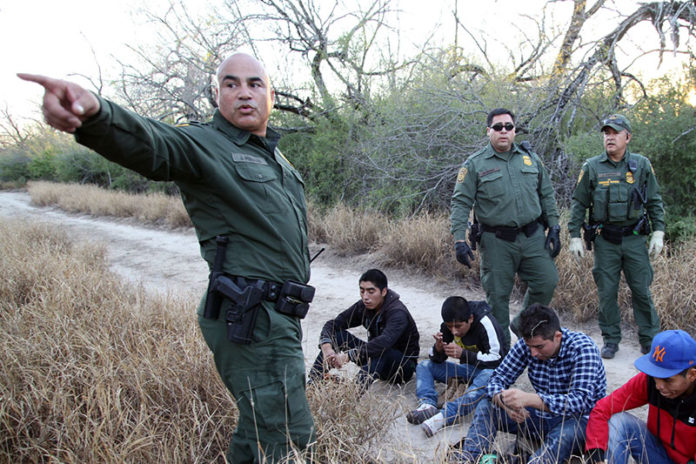A federal appellate court just heard oral arguments involving an outrageous backdoor deal in which a county sheriff promises a leftwing civil rights group to stop detaining illegal immigrants.
The case comes out of Marion County Indiana where an illegal alien, Antonio Lopez-Aguilar, was arrested by local law enforcement after a traffic court hearing in Indianapolis. At the time the Marion County Sheriff’s Office had an agreement with Immigration and Customs Enforcement (ICE) to hold suspects in the U.S. illegally like Lopez-Aguilar until federal officers pick them up for processing.
The American Civil Liberties Union (ACLU) sued the Marion County Sheriff to end the local-federal detainer policy that is practiced by law enforcement agencies nationwide and has led to the removal of countless violent criminals living in the country illegally. The ACLU asserts that ICE uses the detainers to “bully local authorities into imprisoning immigrants, many of whom have done nothing wrong, and funneling them into deportation proceedings.”
Lopez-Aguilar was held in jail and funneled into deportation proceedings solely on the basis of a “detainer request” from ICE, according to the ACLU. “In addition to violating immigrants’ basic constitutional rights, this kind of cooperation between local law enforcement and federal immigration authorities also undermines public safety,” the group claims. “If immigrants are reluctant to show up in court or report a crime out of fear they may be deported, everyone will be less safe.”
The Marion County Sheriff’s Office caved into the ACLU’s demands by agreeing to stop detaining illegal immigrants for the federal government. Under the deal’s terms, the agency won’t seize or detain suspects based on requests from ICE or deportation orders from an immigration court. The feds must provide a warrant signed by a judge or demonstrate probable cause the immigrant committed a crime.
This sort of intimate arrangement between a local law enforcement agency and a private group to skirt federal law seems incredulous. To be fair, a local newspaper reported that the sheriff’s office made the deal to avoid the costly legal expenses of fighting it. “Court documents filed by city attorneys cited the cost of litigation as motivation to end a lawsuit the ACLU filed in September after an Indianapolis man living in the country illegally was detained after a hearing in traffic court,” the article states.
Fortunately, the state got involved and filed an appeal to reverse the scandalous agreement which was approved by a federal judge in the southern district of Indiana last year. Indiana Attorney General Curtis Hill says the decree runs counter to Indiana law and public safety. “Our nation’s immigration laws are put in place to protect the public,” Hill said in a statement last year when his office filed the appeal.
“Establishing a policy that requires law enforcement personnel to not cooperate with each other not only violates Indiana law but jeopardizes public safety.” Last week the Seventh Circuit Court of Appeals heard arguments from the state and the ACLU, which is trying to keep the state from intervening by arguing that it is barred from doing so on procedural grounds. A three-judge panel heard oral arguments in Chicago on Friday.
The attorney representing Indiana taxpayers, Solicitor General Thomas Fisher, told the court that “when there is a specific request from ICE to detain a person,” state law “requires that kind of cooperation.” In 2011 Indiana passed a measure prohibiting the implementation of any policies that restrict local law enforcement agencies from cooperating with federal immigration authorities.
The ACLU-Marion County Sheriff agreement violates that state law, Fisher argued before the appellate court. The ACLU also sued Indiana years ago over the immigration control law, claiming that it’s discriminatory, unconstitutional and unlawfully interferes with federal power and authority over immigration matters. The group claims that the law marginalizes entire communities and undermines our most cherished constitutional safeguards by putting Indiana residents at risk of unlawful warrantless arrests without any suspicion of wrongdoing.






























